ForeignMaster TrainingProgram of InstrumentScience and Technology
A subject code:0804
1. The discipline overview and research direction
(A)Subject overview
Instrument is a tool for understanding the world. It is an important means for observing, measuring, testing, measuring, measuring, monitoring and controlling physical, chemical and biological quantities as well as various kinds of engineering quantities. It is the source of information. Instrument science and technology is a subject of information technology, research information acquisition, processing, and related elements of control theory and technology, electronics, optics, precision machinery, computer, information and control technology and other multi-disciplinary mutual penetration and integration The formation of a high-tech-intensive comprehensive disciplines. It mainly discusses and studies measurement theories and measurement methods in modern industry, agriculture and engineering, various types of measuring instruments, design methods and application technologies of measurement and control systems, and is one of the important supporting disciplines in the development of IT industry. It is also one of the major supporting disciplines in the development of IT industry, Food, chemical, civil engineering and other fields of science and technology innovation and technological progress leading, support and protection of disciplines.
(B) The scope of the discipline
Instrumentation Science and Technology consists of two second-level disciplines: precision instruments and machinery (code 080401) and measurement technology and instrumentation (subject code 080402). Including two research directions:
1.Precision Instrument Technology and Engineering. Mainly for the field of precision engineering and micro and nano technology, high-end equipment manufacturing, biomedicine, environmental engineering and related fields of observation and experiment, with photoelectric conversion, electromechanical conversion, optical and electrical conversion and other physical, chemical and biological conversion methods Means to explore the research and development of new principles of scientific instruments, precision measuring instruments, special precision test equipment and test equipment.
2. Test and Measurement Technology and Instruments. Mainly for the geometric quantity, mechanical quantity, electrical quantity (electromagnetism and electronics), optical quantity, thermal quantity, acoustic quantity, time frequency, ionizing radiation and other related physical and engineering quantities as well as chemical quantity and biomass, to explore and research new Measurement principles and methods, and methods for traceability and delivery of quantities; meanwhile, develop and develop new instruments and metrological standards devices, carry out research on comprehensive testing, diagnosis and prediction of equipment or systems, develop and develop new testing systems, and establish their calibrations And test the method of comparison.
Both disciplines need to acquire expertise and application skills in electronics, optics, precision mechanics, computer technology, automation and information processing.
(C) The basis of the discipline, the main research directions and characteristics
Instrument Department of Jiangsu University originated in 1982, the former Ministry of Machinery Industry approved the establishment of the test technology laboratory, in 2003 by the test measurement technology and instrument two disciplines of master's degree awarded, in 2010 by the instrument science and technology level discipline master's degree grant And instrumentation engineering master's degree awarded, in 2013 approved the school key construction discipline. In recent years, the discipline faces the major battlefields of the country and the economic construction of Jiangsu and solves the major theoretical and technical problems related to testing techniques and instruments in industrial and agricultural production. It has established "modern test systems and instruments," "system testing and intelligent control," and " Sensing and nondestructive testing "three distinctive and stable research direction, and in the domestic" for large equipment manufacturing and modern agriculture detection and intelligent control, modern instrument design "formed a comparative advantage and characteristics.
1.Modern test systems and instruments. For large equipment and its manufacturing industry, modern agriculture, the focus of modern test systems and equipment, the basic theory, design methods and application of technology to carry out automated test system design and modern instrument technology research, build a new test theory and system to solve large equipment, Automated Measurement and Control in Facilities Agriculture.
2.System monitoring and intelligent control. Faced with the rapid development of modern agriculture, modern design methods, intelligent control technology, multi-sensor information fusion theory and wireless sensor network technology are used to systematically carry out on-line monitoring and intelligent control of agricultural equipment, fault diagnosis, agricultural product damage and food quality testing, Equipment navigation and other aspects of research.
3.New sensing and non-destructive testing. For the industrial and agricultural production of large automated equipment, to carry out the new ultrasonic technology, acoustic emission, laser, visible light and infrared-based NDT new technology research and development; sensitive functional materials based on the new effects, to carry out amorphous alloys, nanocrystalline alloy materials Magneto-mechanical coupling effect of giant magnetism, giant stress-impedance effect and laminated composites, micro / nano mechanical and electrical sensing mechanism, new sensing and testing instruments.
2. Training objectives
In order to meet the needs of social development, the master degree winners should be able to systematically and deeply master the professional knowledge in the field of instrumentation science and technology to understand the status quo, development trends and the forefront of international academic research. A rigorous and realistic style of science, theory can be linked with reality, can carry out a higher academic or practical value of scientific research, and have a certain degree of innovation and achievements, with scientific research and technological development capabilities.
3. The length of study and training methods
Duration of study: full-time study, study 3 to 5 years.
If it is really necessary to apply for an extension of an extension of not more than one year.
Generally do not allow early graduation, if indeed meet or exceed the school excellent master's thesis requirements, namely: during the period of at least 3 in the core journals (above) published academic papers related to the dissertation, at least 1 I am the first author, At least 1 SCI, SCIE, EI, SSCI included; and "blind trial" average score above 85 points, the lowest score of not less than 80 points, or more than half of the dissertation "blind review" recommended as excellent Master's degree thesis; and apply for outstanding master's thesis school, you can apply for six months in advance, that is, two and a half years of graduation.
The research results related to dissertations are regarded as 1 by the provincial or ministerial level scientific and technological achievement award (top 2) or the authorized national invention patent (1) as SCI, SCIE, EI, SSCI.
Training methods: the implementation of supervisor or under the guidance of the instructor group under the guidance of the supervisor group responsible system, to guide the entire process of postgraduate training, including responsible for the formulation of graduate training programs, guidance of scientific research, professional practice, dissertations and other work, but also guide the academic ethics of graduate students , Demonstration and supervision of the responsibility.
Master's total credit during the period of not less than 30 credits, including the degree course with a total credit of not less than 14 credits. After the course credits are completed, they are qualified to carry out the cultivation of the link.
Meet the paper published requirements, awarded the degree.
4. Course credit requirements
Course category |
Course Title |
Credits |
Semester |
Faculty open the Course |
Course type |
Remark |
Degree courses |
Public degree course |
Introduction to Chinese Culture |
3 |
1 |
Overseas Education College |
Full English |
Compulsory |
ChineseⅠ |
2 |
1 |
Overseas Education College |
Full English |
ChineseⅡ |
2 |
2 |
Overseas Education College |
Full English |
Basic Theory Course |
Numerical Analysis |
2 |
1 |
School of Science |
Full English |
At least 4 credits |
Matrix theory |
2 |
1 |
School of Science |
Full English |
Mathematical Statistics |
2 |
1 |
School of Finance |
Full English |
Core professional degree |
Instrument Accuracy Theory |
3 |
1 |
School of Mechanical Engineering |
Full English |
Required |
Non-degree course |
Professional Elective |
Modern Non-destructive Testing Technology |
2 |
1 |
School of Mechanical Engineering |
Full English |
Optional, at least 10 credits |
Machine Vision Inspection Technology |
2 |
1 |
School of Mechanical Engineering |
Full English |
Sensor Electronics |
2 |
1 |
School of Mechanical Engineering |
Full English |
Process Control Instrumentation Technology |
2 |
2 |
School of Mechanical Engineering |
Full English |
Micro-nano Detection Technology |
2 |
2 |
School of Mechanical Engineering |
Full English |
Virtual Instrument Technology and Applications |
2 |
2 |
School of Mechanical Engineering |
Full English |
Digital Signal Processing |
2 |
2 |
School of Mechanical Engineering |
Full English |
Public electives |
All graduate programs in all disciplines throughout the school |
Optional |
Note: The nature of the course is clearly "English", "bilingual" or "experimental platform" courses.
5.Practice credit requirements
All graduate students must complete compulsory links such as literature reading, academic activities, special seminars and practical courses during their studies, and obtain corresponding practical credits. Practice credits and course credits meet the requirements before they can enter the thesis dissertation defense session.
1. Academic activities (≥ 2 credits)
Graduate students must participate in the school organization "academic ethics seminars" and well-known domestic and foreign experts and scholars seminars, academic reports, graduate forums and other academic seminars, to participate in academic activities must form a complete academic report. Master students should attend more than 10 academic reports during the period of study (0.2 points / time). Academic activities are assessed by subject or mentor. Encourage participation in international and domestic academic exchange activities, and make academic exchanges during the activity.
Overseas to attend the international academic conference to read my thesis and exchange speeches once, issue valid proofs, 2 credits / time;
Domestic academic conferences to read my papers and exchange speeches 1, issued a valid certificate, 1 credit / time;
National high-level academic conference read my papers and exchange speeches 1, issued a valid proof of material, 0.5 credits / time.
2. Chinese and foreign literature reading (≥ 2 credits)
According to "instrument monographs, document reading guide" read more than 20 classics and foreign literature. And complete more than 2 original English translation of professional papers. Use bilingual reports to read and translate content. Foreign Literature Reading Students develop the ability to study academic literature and acquire self-knowledge, as well as the ability of Chinese to apply. Degree thesis dissertation examination before the opening and record the results, unqualified person may not enter the dissertation essay session. Publications of professional academic papers in the core Chinese journals with the first author or the second author (tutor as the first author) may be regarded as qualified for the document reading.
3. Academic report (1 credit / time, ≥ 2 credits)
During the academic period, the graduate student should regularly organize the exchange of literature, academic report or symposium report by the supervisor or the guidance group, at least 2 times (2 credits), advocating the exchange of English seminars and discussions; conducting academic research in the academic field openly Report no less than 1 times, advocating graduate interdisciplinary reporting seminar. Tutors and other teachers to ask questions and give guidance, mentors assessment.
4.Practice (1 credit)
During the school must be carried out for not less than 1 month's practical aspects (including teaching practice, manufacturing enterprises or research institutes practice, etc.), can be a combination of centralized and sub-practice approach; practice teaching content, requirements and time Mentors are responsible for the arrangement, instructor examination.
6.The steering committee and guidance
Implement the supervisor group responsibility system under the supervisor's responsibility system or under the supervisor's guidance system to guide the whole process of postgraduate training, including responsible for formulating postgraduate training plan, guiding scientific research, professional practice and dissertations, etc., and guiding, demonstrating and promoting the academic ethics of postgraduates Oversee the responsibility.
The master postgraduate students should be directed by a qualified major supervisor (Ph.D. graduate faculty), as well as a committee panel containing several qualified co-advisors/committee members. The Advisory Committee initially consists of at least 4 members of the Graduate Faculty, including the Major Advisor, who acts as the chair. At least 2 members must be from the School of Mechanical Engineering, with at least 1 of these being a full member of the Graduate Faculty. The remaining 2 members may be from School of Management or another college, with 1 being a full member of the Graduate Faculty. If the student declares a minor, 1 committee member must be from the minor department. The committee should be established by the end of the second semester of the student’s graduate career.
7.Dissertations
Papers are an important part of master's degree training. It is a key indicator to measure the quality and academic level of graduate students. It is one of the important criteria to measure whether a graduate student can award a degree.
1. Papers open question
The opening question is the most important part of carrying out dissertation work in the process of graduate education. Before writing a dissertation, a graduate student must go through a careful investigation and study, consult a large amount of literature, especially foreign literature, and understand the history and current situation of his main research direction. On the basis of this, he will determine the dissertation research topic and make an opening report. The opening report should address the key issues of the dissertation selection, research programs, expected goals and achievements, work plans and other issues.
Postgraduate thesis on collective trial, by the discipline (college) unified organization, thesis dissertation questions must be approved by the instructor before they can proceed. Encourage discipline direction or guidance group to organize pre-open questions to ensure the quality of the open questions.
Discipline should be set up dissertationdissertation expert examination team, composed of at least five experts in the subject or related disciplines (not less than half of the subject experts), to determine a person in charge of the examination of the opening examination. Dissertation dissertations trial expert panel score (grade) system.
Each graduate student has the opportunity to open a dissertation at most twice during his / her academic study. The time between two open questions should be no less than 3 months, and the student who fails to pass the open question twice will be dropped out of school.
Master's thesis dissertation opening examination report After passing a year (at least 11 months) before applying for trial, defense.
2. Published academic papers and obtained scientific research results
During their studies, graduate students should actively write academic dissertations and obtain certain scientific research achievements. For details, please refer to the "Jiangsu University Regulations on Postgraduate Academic Papers Published in the Academic Period" and the relevant requirements of the academic degree evaluation subcommittee.
If you just apply for a patent for inventions, you must have an essay submission above the core journals (which must be approved and reviewed by the tutor).
3.Thesis writing
The dissertation must be completed independently by the graduate student under the guidance of the supervisor. For the format of the dissertation, please refer to "Requirements for Writing Format of Dissertation for Graduate Students in Jiangsu University".
4. Thesis review and reply
For details of the dissertation review and defense, please refer to the related requirements of "Provisional Regulations on Academic Degrees Awarding in Jiangsu University" and "Blind Trial" of Jiangsu University Graduate Dissertation.
Before the dissertation submission, you must pre-review the subject within one month in advance to ensure the quality of the submission. Encourage subject direction or guidance group to organize pre-defense, to ensure the quality of the reply.
8.The practice process and requirements
During the school must be carried out for not less than 1 month's practical aspects (including teaching practice, manufacturing enterprises or research institutes practice, etc.), can be a combination of centralized and sub-practice approach; practice teaching content, requirements and time Mentors are responsible for the arrangement, instructor examination.
Graduate students are required to participate in the professional teaching practice, including the guidance of undergraduate experiment, marking the lab reports and homework to complete at least 60-70 hours of work. The practice process will be reviewed by the teachers in charge of teaching. The graduate students are also required to attend related seminars and experts forum, and if possible, to participate in social investigation and research or technology promotion. See also <Training Program of Jiangsu University for Graduate Students (general)>, <Jiangsu University graduate training process Introduction>
9.Other requirements
See "Jiangsu University Master's Program (General)", "Jiangsu University Master's Program Introduction".
1. The paper review and examination requirements: the author of the paper .0use of scientific theories, methods and technical means to solve the engineering and technical problems; thesis work technical difficulty and workload; to solve the engineering and technical problems of new ideas, new methods and new progress; its New technology, new technology and new design of the advanced and practical; its creation of economic and social benefits and so on.
2. Papers In addition to the tutor to write a detailed comment on the comments, there should be two experts in the field or in similar areas review. The defense committee should consist of 3 to 5 experts in the field.
3. Repair the full set of credits, and through the thesis respondent, the degree conferment unit degree assessment committee review, awarded a master's degree in engineering, at the same time obtain a master's degree diploma.
Graduate students are required to initiate their thesis study projects prior to the end of the second semester. The medium-term examination for thesis study is scheduled in the fourth semester. Other following important schedules relevant to your graduate study could be found from the Overseas Education College (OEC) at Jiangsu University. In general, a Master’s student is required to have a research proposal and a plan of study accepted by his or her Graduate Advisory Committee by the end of the second semester of study. A list of completed courses and those proposed to meet school requirements should also be prepared. A meeting of the Advisory Committee should be convened by the student to discuss his/her proposal and course work.
Every graduate student is required to publish at least one research paper in a relevant INTERNATIONAL JOURNAL prior to being eligible to apply a dissertation defense. The thesis must demonstrate a mastery of research techniques, ability to perform original and independent research, and skill in formulating conclusions that enlarge upon or modify accepted ideas.
The above achievements are required to be with the first affiliation of Jiangsu University.
10.Financial support
Applicants from a foreign country can apply a variety of Chinese government scholarship that may fully or partially support your degree study at JU. For further information regarding these scholarships provided by Chinese government, you can surf on the website of Overseas Education College (OEC), JU, at http://oec.ujs.edu.cn/pub/eng/Scholarship/GS/. In addition to apply these funding supports, you can also apply a financial assistance provided by school of the Management of JU during your degree study, which depends on your performance in academic research.
Attached: the main classics to be read, the catalog of academic journals, the curriculum and the tutor's introduction.
1. The opening report template
1.Dissertation topics based on
(1) the source, background and purpose of the topic
(2) Research status and development trend at home and abroad
(3) There are currently major problems and deficiencies to be solved
(4) The main reference
2 main research content
3. Research technology routes, research and experimental programs, research methods
4. Expected research goals and research results
5. Need scientific research equipment, conditions and funding budget
6. Research work plan.
2. The main classics
English:
1.Carsten Steger, Markus Ulrich, and Christian Wiedemann. Machine vision algorithms and applications. Weinheim: wiley-VCH, 2008.( Textbook,课程教材)
2.Ramesh Jain, Rangachar Kasturi, and Brian G. Schunck. Machine vision. New York: McGraw-Hill, 1995.
3.Richard Hartley and Andrew Zisserman, Multiple View Geometry in Computer Vision. Cambridge University Press, 2000.
4.Milan Sonka, Vaclav Hlavac, and Roger Boyle. Image processing, analysis, and machine vision. Toronto: Thomson, 2008.
Chinese:
1, measurement and control system theory and design, Sun Youchuan etc. Beijing University of Aeronautics and Astronautics Press, 2007
2, measurement and control circuits and devices, Sun Youchuanetc .. Beijing University of Aeronautics and Astronautics Press, 2002
3, cognitive wireless network wireless transmission technology, Li Shaoqian waiting, National Defense Industry Press, 2014
4, measurement and control equipment design, Pu Zhao Bang Wang Guangguang editor, Machinery Industry Press, 2007
5, the sensor theory and application, edited by Zhu Yun Pu, etc., National Defense Industry Press, 2005
6, control instruments and systems, edited by Liu Xi Min, National Defense Industry Press, 2012
7, the sensor principle and sensor technology, Jia Shifeng editor, Machinery Industry Press, 2009
8, intelligent fault diagnosis and prediction in engineering systems, the United States George Vachtsevanos Frank L. waiting, Yuan Haiwen et al., National Defense Industry Press, 2006
9, wireless sensor detection network information processing technology, Wang Huibin waiting, National Defense Industry Press, 2010
10, instrument manufacturing technology, edited by Qu Xinghua, Machinery Industry Press, 2013
11, the sensor principle and detection technology, Qian Xian Yi, editor in chief, Machinery Industry Press, 2011
12, Intelligent Instrument Theory and Design Technology, edited by Liu Damao, National Defense Industry Press, 2014
13, automatic test system integration technology, Li Xing Shan, etc. Electronic Industry Press, 2004
14, intelligent detection system and data fusion, Teng Zhaoshengetc .. Machinery Industry Press, 1999
15, CPLD system design technology entry and application, such as Huang Zheng. Electronic Industry Press, 2002
16, based on LabWindows / CVI virtual instrument design, Liu Junhua, etc. Electronic Industry Press, 2003
17, modern radio monitoring and control technology, Meng Weixiao et al. Electronic Industry Press, 2003
18, Test and Measurement Technology Foundation, Zhou Wei, etc. Xidian University Press, 2004
19, the principle and realization of digital signal processing, Wu Zhenyang. Southeast University Press, 2002
20, error theory and data processing, Faye Tai editor, mechanical industry press, 2010 sixth edition
3. The major professional academic journals
Major foreign professional academic journals
1、MTDR 2、IEEE 3、Mechanical Eng 4、Control System 5、Control Eng 6、IEEE Signal Processing Magazine 7、IEEE Transactions on Information Theory 8、ACM Transactions on Information Systems 9、Information Systems Management 10、IEEE Transactions on Communications 11、IEEE Transactions on Image Processing 12、Mechanical Systems and Signal Processing 13、IEEE Transactions on Circuits and Systems, Part 2 14、IEEE Transactions on Information Technology in Biomedicine 15、IEEE Transactions on Computers 16.ultrasonics. 17. measurement. 18. measurement science and technology. 19. NDT & E International. 20. Journal of Nondestructive Evaluation. 21.Journal of Applied Measurement. 22. Journal of Dynamic Systems, Measurement, and Control.23. Instrumentation and Measurement, IEEE Transactions on 24.SENSORS25.IEEE SENSORS JOURNAL 26.SENSORS AND ACTUATORS A-PHYSICAL 27.SENSORS AND ACTUATORS B-CHEMICAL 28.Sensor Review 29.SENSOR LETTERS 30.SENSORS AND MATERIALS 31.JOURNAL OF SENSORY STUDIES 32.REVIEW OF SCIENTIFIC INSTRUMENTS 33.IEEE TRANSACTIONS ON INSTRUMENTATION AND MEASUREMENT 34.ACM Transactions on Sensor Networks 35. MEASUREMENT SCIENCE & TECHNOLOGY 36. TRANSACTIONS OF THE INSTITUTE OF MEASUREMENT AND CONTROL 37. IET Science Measurement &Technology 38. MEASUREMENT & CONTROL 39. IEEE TRANSACTIONS ON INDUSTRIAL ELECTRONICS 40. IEEE ELECTRON DEVICE LETTERS
41.International Journal of Computer Vision (IJCV)
42.IEEE Transaction on Pattern Analysis and Machine Intelligence (PAMI)
43.IEEE International Conference on Computer Vision and Pattern Recognition (CVPR)
44.IEEE Computer Society International Conference on Computer Vision (ICCV)
45.Computer Vision and Image Understanding
46.Image and Vision Computing
47.Machine Vision and Applications
48.Ultrasonics
49.NDT&E International
50.IEEE UFFC
51. Information Theory
52. Signal Processing
Major Chinese professional academic journals
1. Journal of sensor technology 2. sensors and microsystems 3.Cognitive wireless network wireless transmission technology, Li Shaoqian waiting, National Defense Industry Press, 2014 4 Instrumentation, Measurement 5, Information and Control 6, Signal Processing 7, Automation Instrumentation 8, Journal of Electronic Measurement and Instrumentation 9, Industrial Instrumentation and Automation 10, Sensor technology 11, measurement and testing technology 12, nondestructive testing 13, nondestructive testing 14, measurement and control technology 15, instrumentation technology 16, dynamic analysis and testing technology 17, instrumentation and sensors 18, electronic measurement technology 19, foreign sensing technology 20, Data acquisition and processing21, China Electrical Engineering Society 22, China Food Instrumentation 23, Computer Journal 24, Analysis and Testing Journal 25, Industrial Control Computer 26, Mechanical Engineering Journal 27, Pattern Recognition and Artificial Intelligence 28, Computer Technology and Automation 29, Journal of Automation 30, China Journal of Image and Graphics 31, China Measurement 32, Computer Measurement and Control 33, Optics and Optoelectronics 34, Optoelectronics 35, Spectroscopy and Spectral Analysis 36, Optics and Precision Engineering 37, Environmental Engineering 38, Mechatronics 39, Automotive Engineering 40 , Chinese Journal of Laser 41, Journal of Infrared and Millimeter Waves 42, Transactions of Electric Machines and Control 43, Journal of System Simulation 44, System Simulation 45, Chemical Sensors 46, Journal of Software 47, Piezoelectric and Acoustooptic 48, Optoelectronics 49, Application of Electronic Technology 50, China Environmental Monitoring, 51, Information Technology 52, Chinese Journal of Biomedical Engineering 53, Journal of Jiangsu University (Natural Science Edition) 54, Journal of Agricultural Engineering 55, Journal of Irrigation Mechanical Engineering 56,Journal of Agricultural Mechanization
4. The course content
1. Course Name: Instrument Precision Theory
Main target:
Through the study of this course, students are to master the basic theory and method of test and experimental data processing, correctly estimate the measured value, scientifically and objectively evaluate the measurement result, and make the test process and experimental method reasonable according to the accuracy requirements of the test object design. On this basis, the concept of instrument precision is established, and the instrument design can be guided by the idea of error traceability and distribution to meet the design accuracy requirements. Understand the various modern approaches to dynamic test data and apply them appropriately in scientific research.
Brief introduction:
1. The first one is measurement, error and precision
2. The second part is the expression of measurement error and its treatment
3. Lecture 3 Measurement Uncertainty
4. Lecture 4 Least - squares processing of linear parameters
5. Chapter Five Regression Analysis
6. Lecture 7 An overview of the processing methods of dynamic measurement data
Test method:
Written examination (open book) + PPT report
2.Course Title: Sensor Electronics
Main target:
Sensor electronics is a discipline that introduces both modern sensing technology and transducers for measuring transducers and signal conditioning circuits. Through this course, students learn the sensitive functional materials, working principles, and key performance of various sensors Characteristics and its application in practice, laying a solid foundation for students to apply sensors and sensor technology research.
Brief introduction:
1. Resistive Sensor Signal Conditioning
2. Reactive and Magnetic Sensors
3. capacitive sensor signal conditioning circuit
4. thermoelectric, piezoelectric, photoelectric sensor
5. Active Sensor Signal Conditioning Circuits
6. Digital Sensors and Signal Conditioning Circuits
Evaluation method:
Written examination (open book)
3.Course Title: Multisensor Information Fusion Technology
Main target:
Multi-sensor data fusion technology is an emerging technology developed in recent years, and has broad application prospects in the measurement and control technology and intelligent instruments. The course of multisensor data fusion theory mainly introduces the purpose and definition of data fusion; the basic principle of data fusion; the structure and function model of multisensor data fusion system; the multisensor data fusion method; the system modeling of multisensor data fusion; the multisensor data The application of fusion technology and research direction and so on. This course is designed to allow students to master the theory of multisensor data fusion and lay a theoretical foundation for the design and application of various measurement and control systems and smart instruments.
Brief introduction:
1.Introduction to data fusion
2. The structure and function model of multi-sensor data fusion system
3. Multi-sensor data fusion method
4. System Modeling for Multisensor Data Fusion
5. Multi-sensor data fusion technology application examples
6. The research direction and existing problems of multisensor data fusion
Evaluation method:
Thesis report
4. Course Title: Machine Vision Inspection Technology
Main target:
This course introduces the theoretical development and current progress of machine vision, expounds the basic theoretical framework and basic concepts in machine vision, analyzes and discusses in detail the main theories and important methods used in machine vision, and compares the main problems in machine vision research. , Analyze the characteristics and limitations of various major solutions; introduce various application fields and related topics in machine vision, and lay a solid foundation for students to become research talents.
Brief introduction:
1. Image Acquisition
2. Image Enhancement
3. Image Segmentation and Feature Extraction
4. Morphology
5. Edge Extraction
6. Camera Calibration
7. Machine Vision Applications
Test method:
Thesis report
5. Course Name: Modern NDT Technology
Main target:
Students should understand the basic concepts of nondestructive testing, commonly used nondestructive testing methods, testing theory and features. Course Requirements After learning, students have the ability to use nondestructive testing methods to solve practical problems.
Brief introduction:
1. Introduction to NDT Technology
2. Visual Inspection Technology
3. magnetic particle detection technology
4. eddy current testing technology
5. Radiation Detection Technology
6. ultrasonic testing technology
7. infrared thermal imaging detection technology
Test method:
Thesis report
6. Course Name: Micro-nano Detection Technology
Main target:
This course covers techniques, methods and systems commonly used in the field of micro / nano detection. Understand the working principle of micro sensor and its typical application; Master the basic theory and method of micro / nano detection technology, the working principle of micro / nano measuring systemAnd composition and application of micro-nano measurements of different physical quantities.
Brief introduction:
1. icro-nano detection technology
2. Signal Sensing and Microsensors
3. Optical methods of micro / nano detection technology
4. Measurement Techniques for Typical Physical Quantities and Characteristics of MEMS Systems
Test method:
Thesis report
7. Course Name: Virtual Instrument Technology and Application
Main target:
Through this course, students can master the basic knowledge of virtual hardware and software system, programming method and virtual instrument development technology, and can comprehensively use the LabVIEW development platform and related hardware to complete the more complex measurement and control system design based on virtual instrument technology, Training students to design their own development and set up automated test systems, measurement and control system capabilities.
Brief introduction
1. Overview
2. LabVIEW Fundamentals
3.Program Structure
4. Arrays and Clusters
5. String and File Access
6. Data Acquisition
7. Instrument Control
Test method:
Thesis report
8.Course Title: Digital Signal Processing
Main target:
This course, through lectures and exercises, enables students to establish the basic concepts of "digital signal processing" so that students can systematically master the basic principles and basic analysis methods of digital signal processing, master the basic analysis methods and analysis tools of digital signal processing, Information or signal processing and other aspects of research laid the foundation. Students should have initial algorithmic analysis and the ability to use MATLAB programming
Brief introduction:
1. Overview
2. Matlab foundation
3. Discrete Time Signals and Systems
4. Discrete Fourier Transform and Its Fast Algorithm
5. Filter design method
6.The realization of digital signal processing system
Test method:
Thesis report
9.Course Title: Process Control Instrumentation Technology
Main target:
Master process control instrument technology and process control related content. Including analog signal conditioner, digital signal conditioner, mechanical sensors, terminal control, analog controller and digital controller.
Brief introduction:
1. Introduction
2. Analog Signal Processing
3. Digital Signal Conditioning
4. Mechanical Sensors
5.Terminal Control
6. Modulus, numerical controller
Evaluation method:
Thesis report
5. Mentor profile
1.Boquan Li
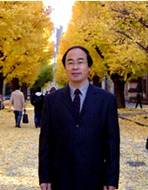
|
Boquan Li |
Professor, doctoral tutor |
Mailing address: School of Mechanical Engineering, Jiangsu University, No. 301 Xuefu Road, Zhenjiang, Jiangsu Province (212013) |
Tel: (86) 511-88780173(O), (86)013852914281 |
Fax:(86) 511-88791671 |
E-mail:libq@ujs.edu.cn; ujslibq@163.com |
The main research direction 1.Automatic test and measurement systems and modern equipment; 2.Integration of optical and electrical integration technology and system integration; |
2.Xiliang Zhang
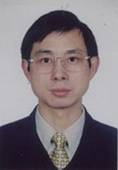
|
Xiliang Zhang |
Professor, doctoral tutor |
Mailing address: School of Mechanical Engineering, Jiangsu University, No. 301 Xuefu Road, Zhenjiang, Jiangsu Province (212013) |
Tel: (86) 511-88780173(O), (86)013815179339 |
传真:(86) 511-88780241 |
Fax: 190337373@qq.com, zhangxl@ujs.edu.cn |
The main research direction 1.Automatic quantification of powder and material and intelligent control; 2.Energy-efficient smash mixing machinery and environmental purification technology; 3.System wireless monitoring and environmental testing equipment. |
3.Shoupeng Song
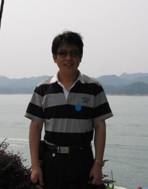
|
Shoupeng Song |
Professor |
Mailing address: School of Mechanical Engineering, Jiangsu University, No. 301 Xuefu Road, Zhenjiang, Jiangsu Province (212013) |
Tel: (86) 013815176895 |
Fax: |
E-mail: songshoupeng@126.com . |
The main research direction 1.Ultrasonic testing of new principles, new technologies and testing equipment; 2.Modern signal processing, parameter detection and estimation; 3.Intelligent information processing, pattern recognition and fault diagnosis; 4.Industrial and agricultural online intelligent detection and diagnosis technology and equipment. |
4.Jin Chen

|
Jin Chen |
Professor, doctoral tutor |
Mailing address: School of Mechanical Engineering, Jiangsu University, No. 301 Xuefu Road, Zhenjiang, Jiangsu Province (212013) |
Tel: (86) 511-88780173(O), (86)013052922858 |
Fax:(86) 511-88780241 |
E-mail:ymli@ujs.edu.cn |
The main research direction 1.System monitoring and intelligent control; 2.Multisensor information fusion theory and its application. |
5.Binghao Bao
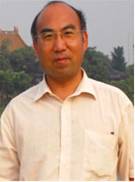
|
Binghao Bao |
Professor |
Mailing address: School of Mechanical Engineering, Jiangsu University, No. 301 Xuefu Road, Zhenjiang, Jiangsu Province (212013) |
Tel: (86) 511-88780173(O), (86)013052922858 |
Fax:(86) 511-88780241 |
E-mail:ymli@ujs.edu.cn |
The main research direction 1.New sensing technology; 2.Intelligent instrumentation; 3.Sensitive mechanism and application of new materials. |
6.Zhenying XU
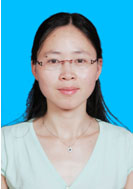
|
Zhenying XU |
Professor, doctoral tutor |
Mailing address: School of Mechanical Engineering, Jiangsu University, No. 301 Xuefu Road, Zhenjiang, Jiangsu Province (212013) |
Tel: (86) 511-88790881(O), (86)013775372507 |
Fax:(86) 511-88780241 |
E-mail:zhyxu77@163.com, wangyun@ujs.edu.cn |
The main research direction 1.Machine vision theory and detection technology; 2.Light and sound nondestructive testing theory and technology; 3.Micro-device precision forming and precision control; 4.Instrument and test accuracy theory. |
7.Kaiyu Luo
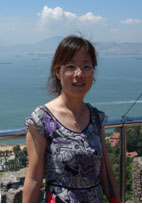
|
Kaiyu Luo |
Professor, doctoral tutor |
Mailing address: School of Mechanical Engineering, Jiangsu University, No. 301 Xuefu Road, Zhenjiang, Jiangsu Province (212013) |
Tel: (86) 511-88797598(O), (86)013861356825 |
Fax:(86) 511-88780241 |
E-mail:luoteacher@126.com, jxscience@ujs.edu.cn |
The main research direction 1.Micro-plastic deformation mechanism of laser shock strengthened structure metal; 2.Composite remanufacturing technology of laser shock cladding layer to eliminate tensile stress; 3.The virtual instrument detection technology of laser mechanics effect. |
8.Shiqing Zhang
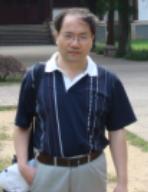
|
Shiqing Zhang |
Associate Professor |
Mailing address: School of Mechanical Engineering, Jiangsu University, No. 301 XuefuRoad, Zhenjiang, Jiangsu Province (212013) |
Tel:(86) 511-88780953, (86)13921588571 |
Fax:(86) 511-88780241 |
E-mail:zsq@ujs.edu.cn |
The main research direction 1.Data compression technology; 2.Computer network technology and application; 3.Measurement and control of mechanical systems. |
9.Liang Chen

|
Liang Chen |
Associate Professor |
Mailing address: School of Mechanical Engineering, Jiangsu University, No. 301 Xuefu Road, Zhenjiang, Jiangsu Province (212013) |
Tel:(86) 511-88780953, (86)13921588571 |
Fax:(86) 511-88780241 |
E-mail:chenliang.hhm@gmail.com |
The main research direction 1.ireless location 2.Statistical signal processing research 3.Bayesian estimation and modeling |
10.Hongmei Hu
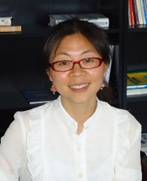
|
Hongmei Hu |
Associate Professor |
Mailing address: School of Mechanical Engineering, Jiangsu University, No. 301 Xuefu Road, Zhenjiang, Jiangsu Province (212013) |
Tel:(86) 511-88780953, (86)13921588571 |
Fax:(86) 511-88780241 |
E-mail:huhongmei.hu@gmail.com |
The main research direction 1.Voice enhancement 2.Virtual Acoustics 3.Study of hearing impairment 4.Noise reduction in cochlear and hearing aids 5.EEG signal processing |
11.Xiuchun Hao
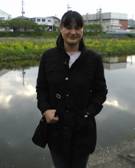
|
Xiuchun Hao |
Associate Professor |
Mailing address: School of Mechanical Engineering, Jiangsu University, No. 301 Xuefu Road, Zhenjiang, Jiangsu Province (212013) |
Tel: (86) 17768656480 |
Fax: (86) 511-88780241 |
E-mail:haoxc@ujs.edu.cn; |
The main research direction 1. MEMS devices and technologies 2. Micro-nano sensor integrated manufacturing technology |
12.Lin Xu
|
Lin Xu |
Associate Professor |
Mailing address: School of Mechanical Engineering, Jiangsu University, No. 301 Xuefu Road, Zhenjiang, Jiangsu Province (212013) |
Tel: (86) 13921589428 |
Fax: (86) 511-88780241 |
E-mail: xuling@ujs.edu.cn; |
The main research direction 1.MEMS devices and technologies 2.Micro-nano sensor integrated manufacturing technology |
